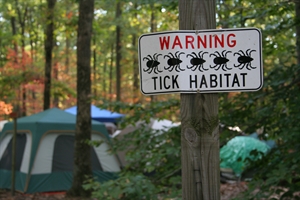Insects outnumber people by about ten to one so it is not surprising that sometimes we cause problems for each other! Their bites and stings can be very painful, and, if you have an allergy, can make you very ill. But did you know that insects are vectors for a number of diseases some of which are very serious. The insects get infected by bacteria, viruses or protozoa which they then pass on to people via a bite.
Luckily, there are some steps you can take to avoid most of these diseases.
First you should find out what disease occur in the regions you are planning to visit. A good first step is to check Global Travel Clinic’s destination guides. And a travel health adviser such as the nurses at Global Travel Clinics can, if you tell them about your travel plans and what activities you are going to be doing, give you the latest information from around the world. Once you arrive in your destination you should take local advice on board, too.
And now, let’s meet some of the usual suspects.
Ticks
Ticks are related to spiders and have a habit of attaching themselves to animals (including humans) to feed on blood. They occur all over the world and can pass on several conditions including babesiosis, tick-borne encephalitis, Heartland virus, Lyme disease and rickettsia diseases. So, you’ll want to avoid tick bites wherever possible.
Who is at risk from tick bites?
Tick bites affect outdoorsy people, such as agricultural and forestry workers, and hikers, campers and mountain bikers.
How to avoid tick bites
Tuck your trousers into your socks, wear long sleeves and use insect repellent. Keep to clear paths: don’t bash trails through undergrowth or long grass.
Mosquitoes
Mosquitoes are small flies that have been around since the Jurassic era. They use their tube-like mouthparts to pierce the skin of other organisms so that they can drink blood.
What illness do mosquitoes carry?
Mosquitoes are vectors for Dengue fever, malaria, pogosta disease, filariasis, West Nile disease, Chikungunya fever and Zika.
Who is at risk from mosquito bites
Mosquitoes are a risk for all travellers, so everyone should take precautions against them.
How to avoid mosquito bites
Wear clothing with good limb coverage, and use an insect repellent that contains DEET. You should sleep under bed nets, in a room with mosquito screens or in an air-conditioned room.
Other insects
Assassin bugs in South America and Mexico carry Chagas disease. For advice see Chagas Coalition.
From time to time outbreaks of plague occur in various parts of the world. This severe disease is contracted from fleas if you know you are going somewhere where there is an outbreak, you should avoid flea bites by using a DEET-based insect repellent.
The tsetse fly carries sleeping sickness in 36 Sub-Saharan countries. Insect repellent does not bother tsetse flies, but you can avoid their bites by wearing neutral-coloured clothing – they are attracted to bright and dark colours. Tsetse flies can bite through thin clothing.
Can I get vaccinated against insect-borne diseases?
There are shots available for yellow fever, Japanese encephalitis and tick-borne encephalitis. You can also get tablets to protect yourself from malaria.


Book Online